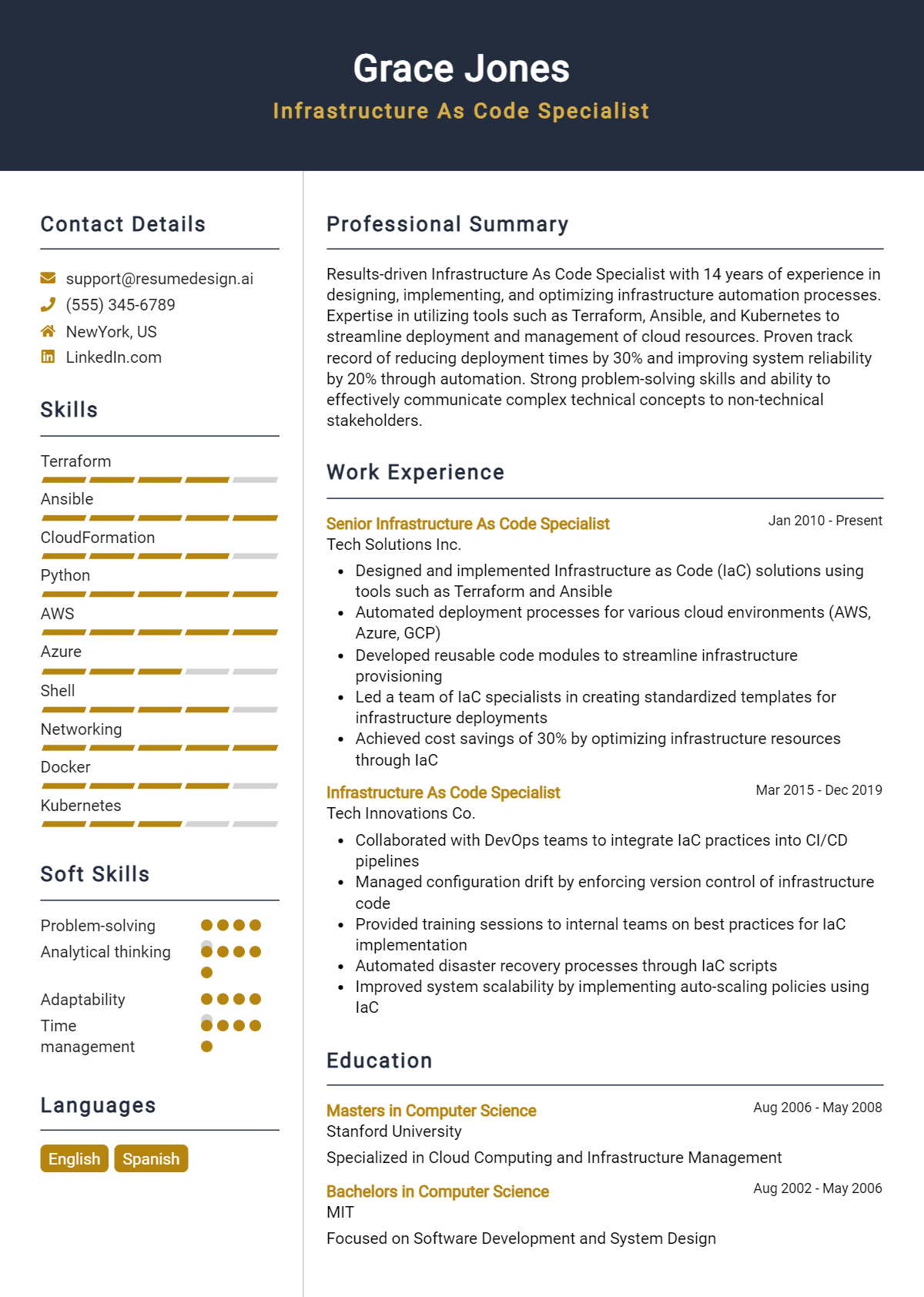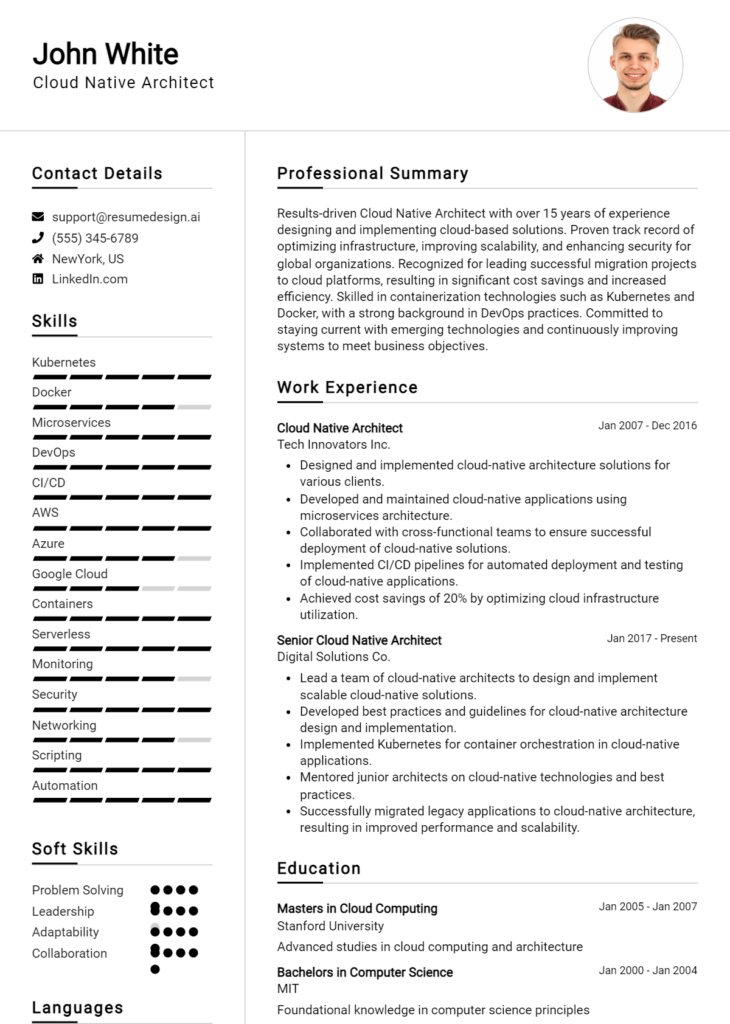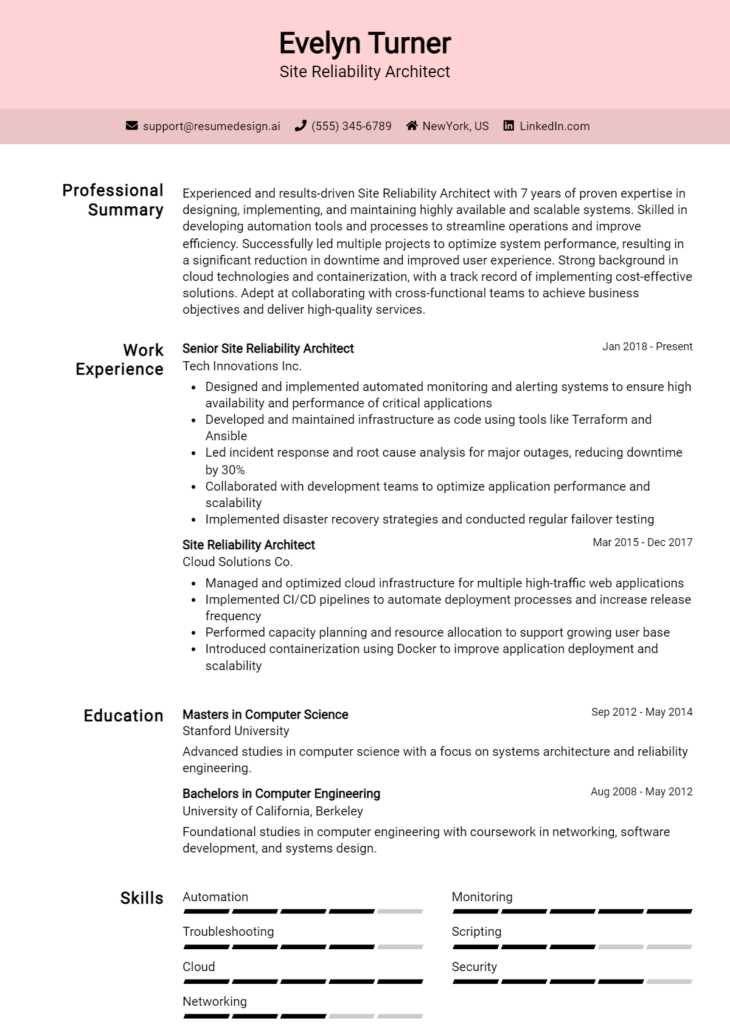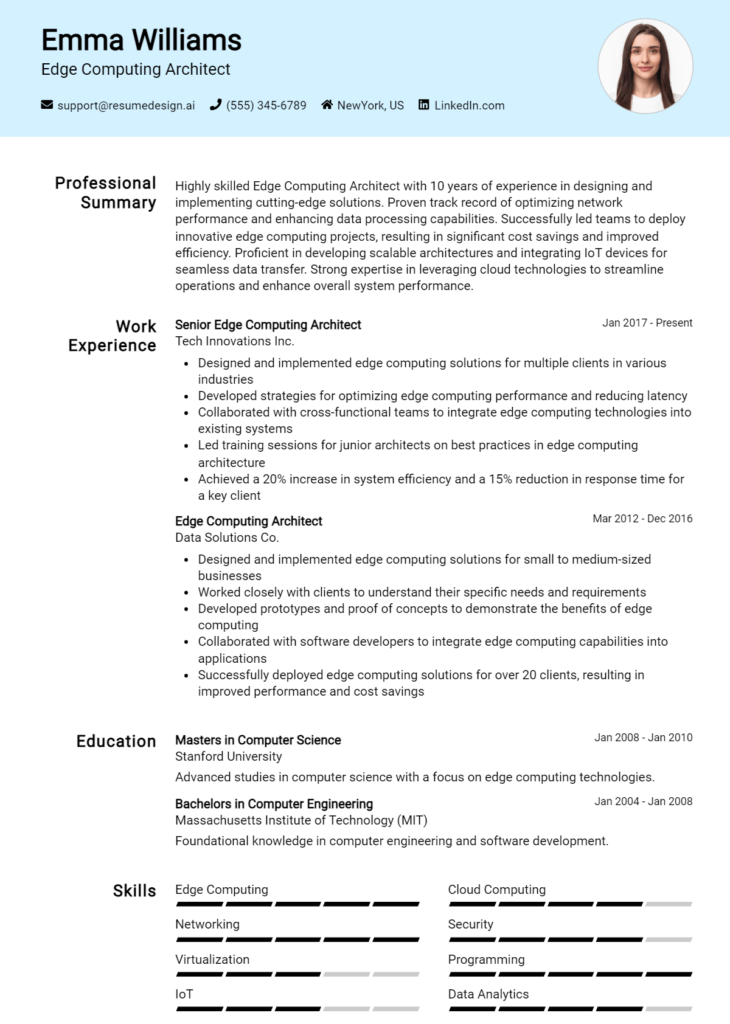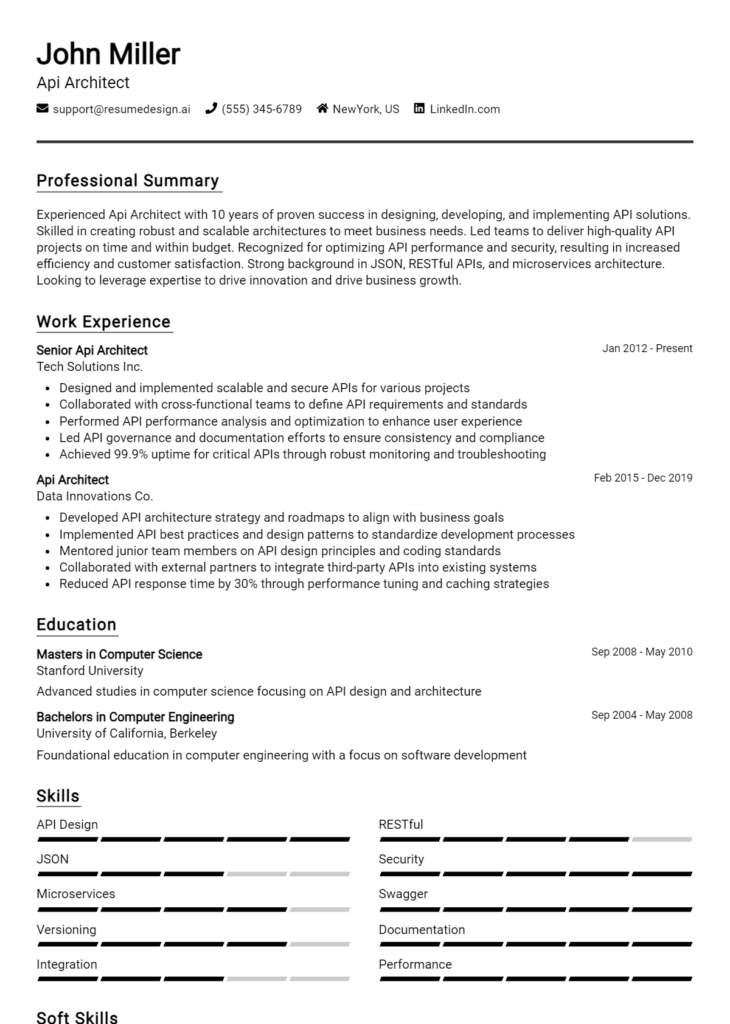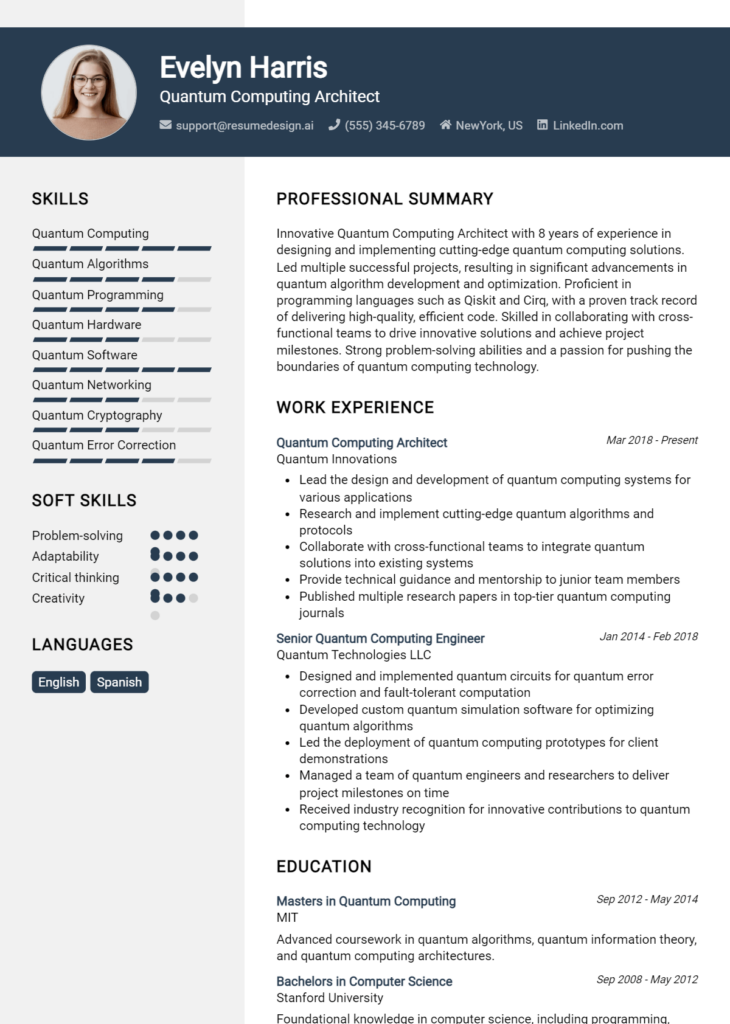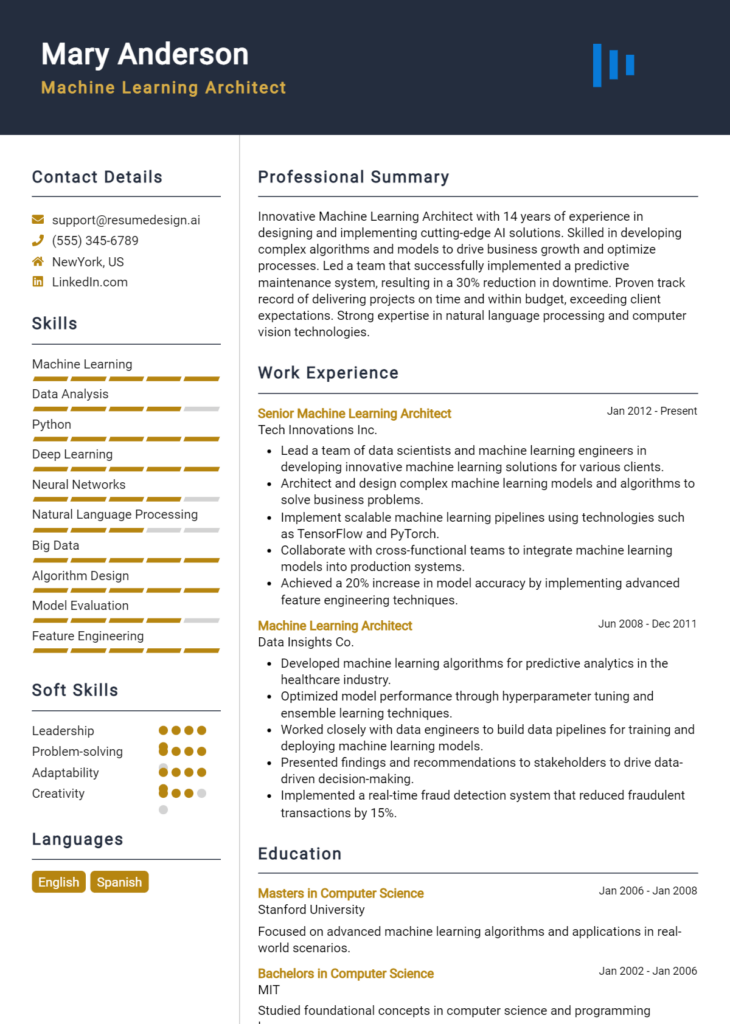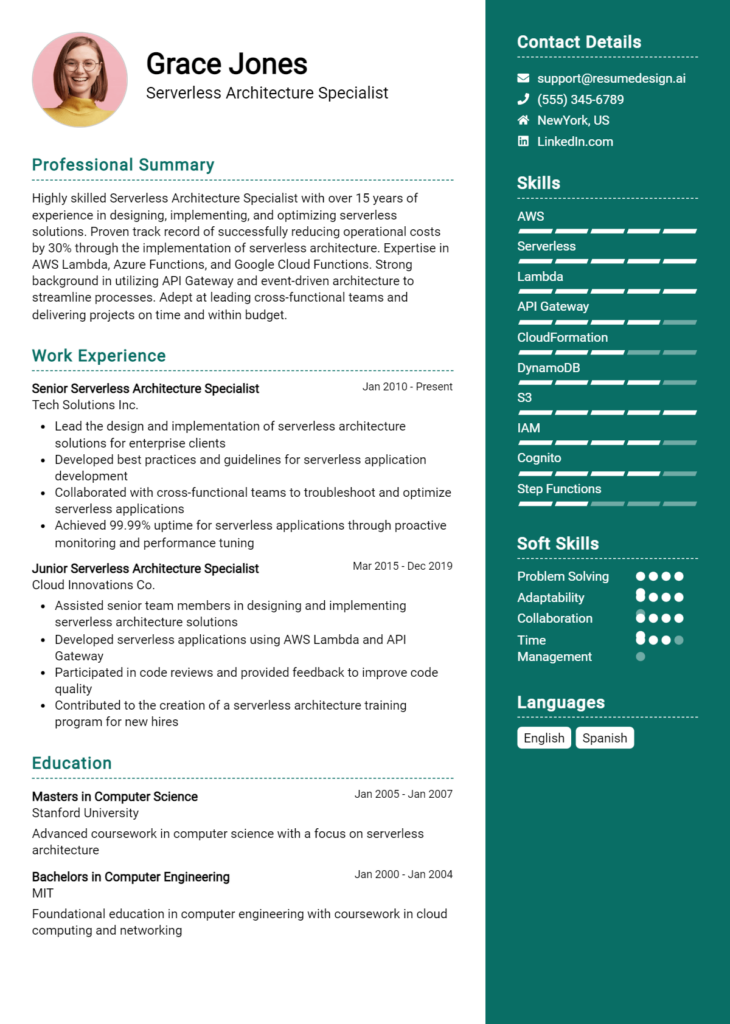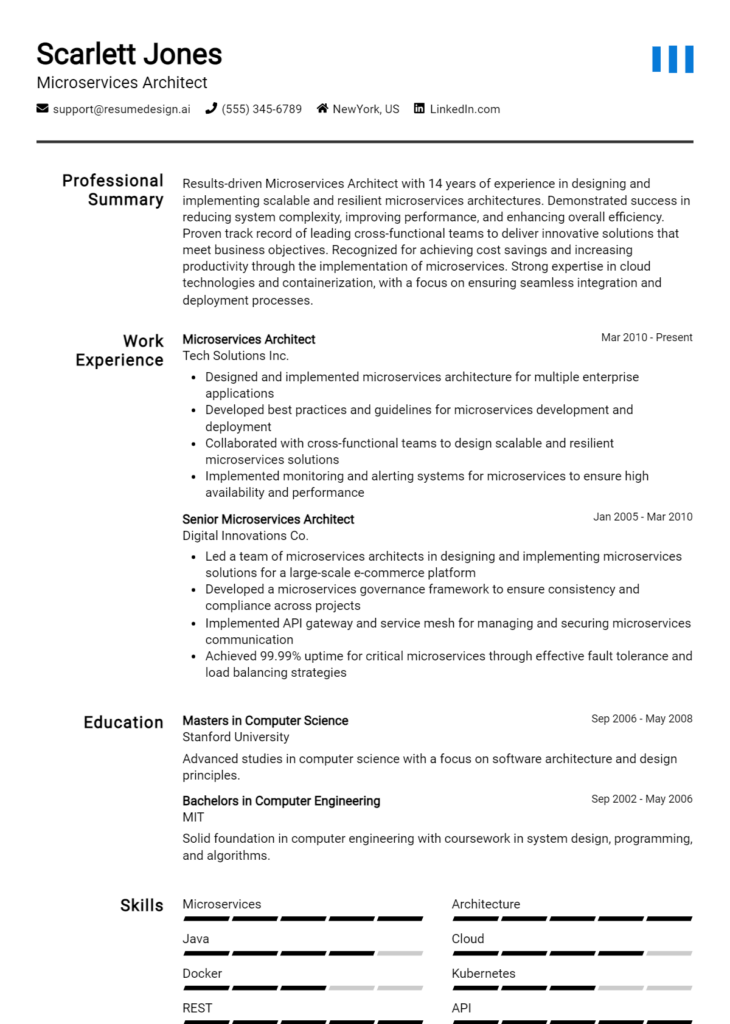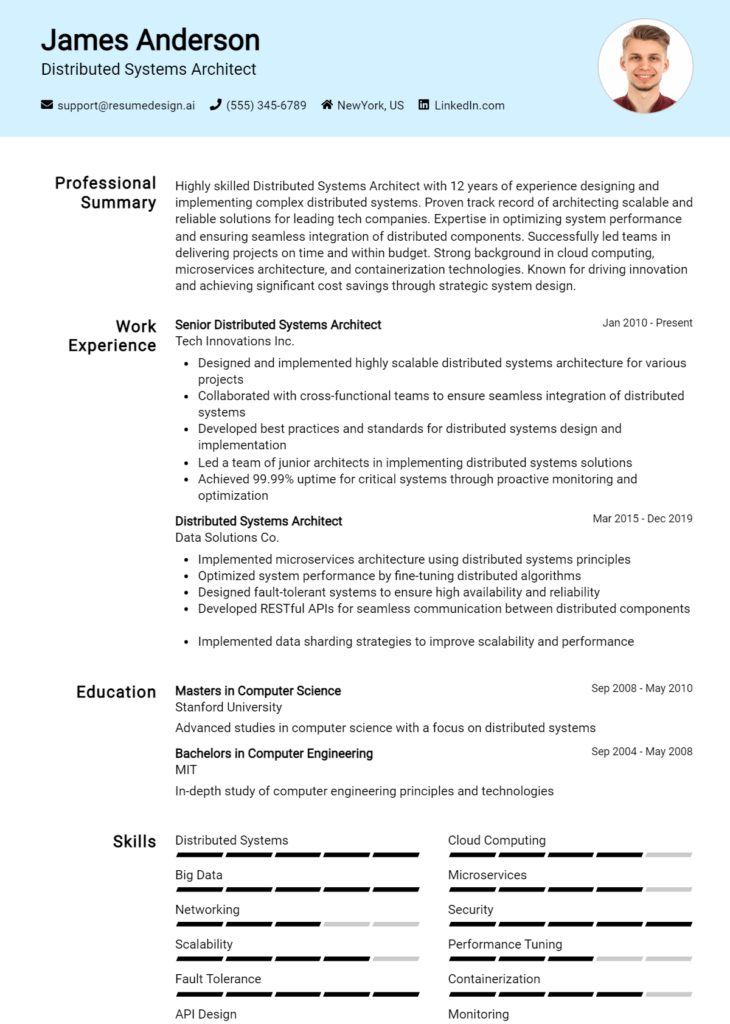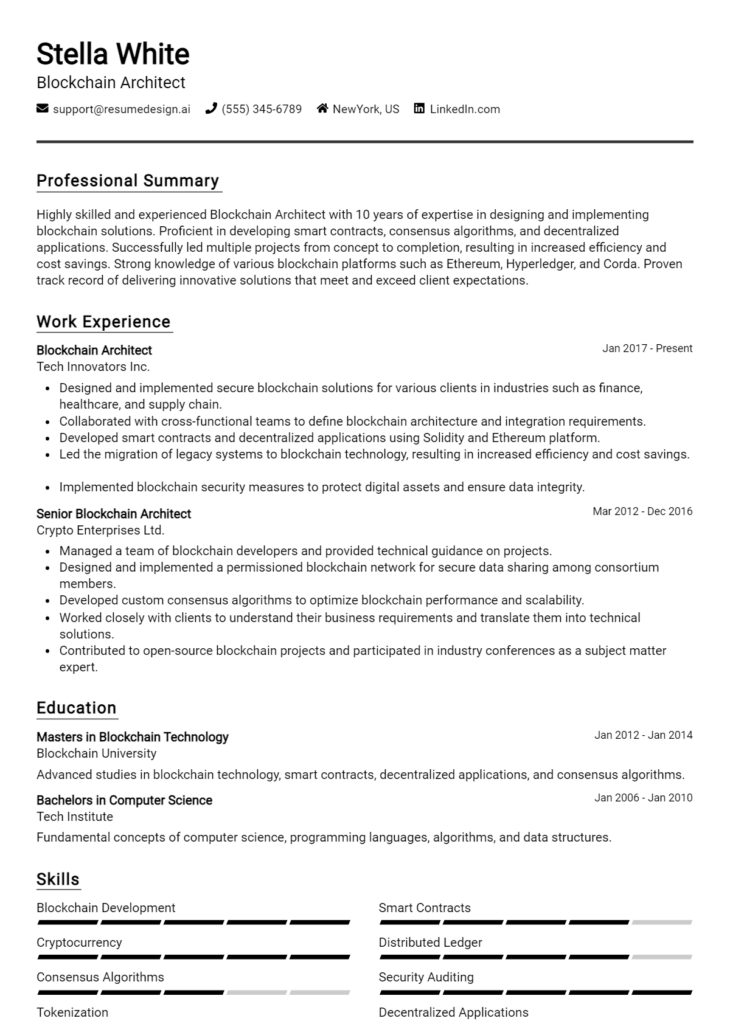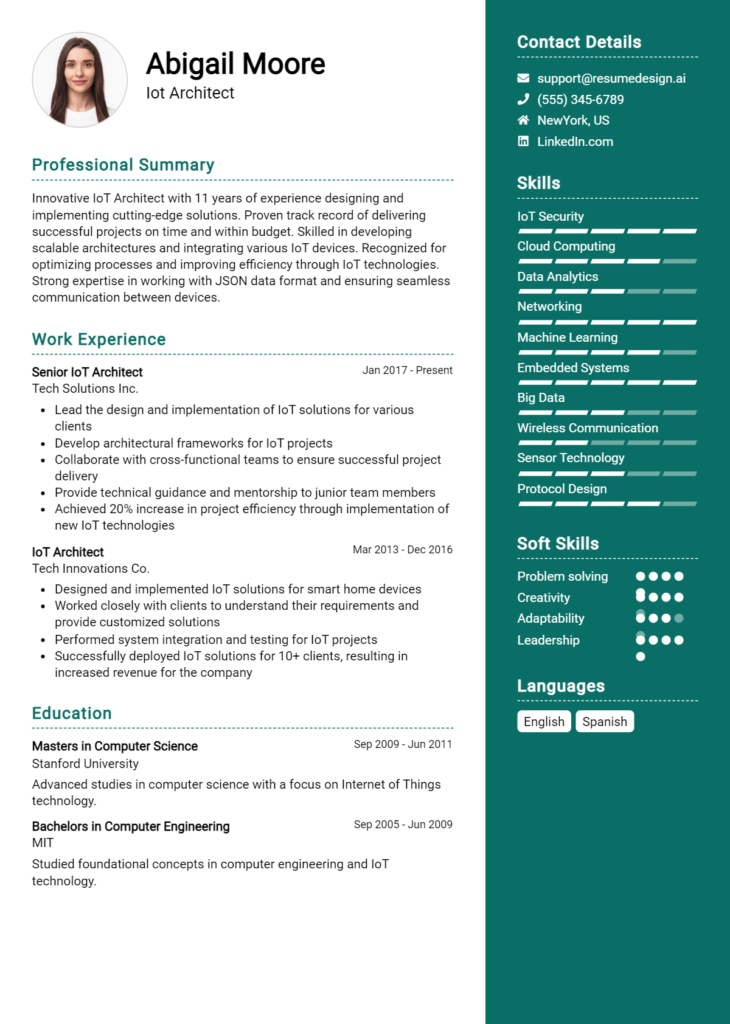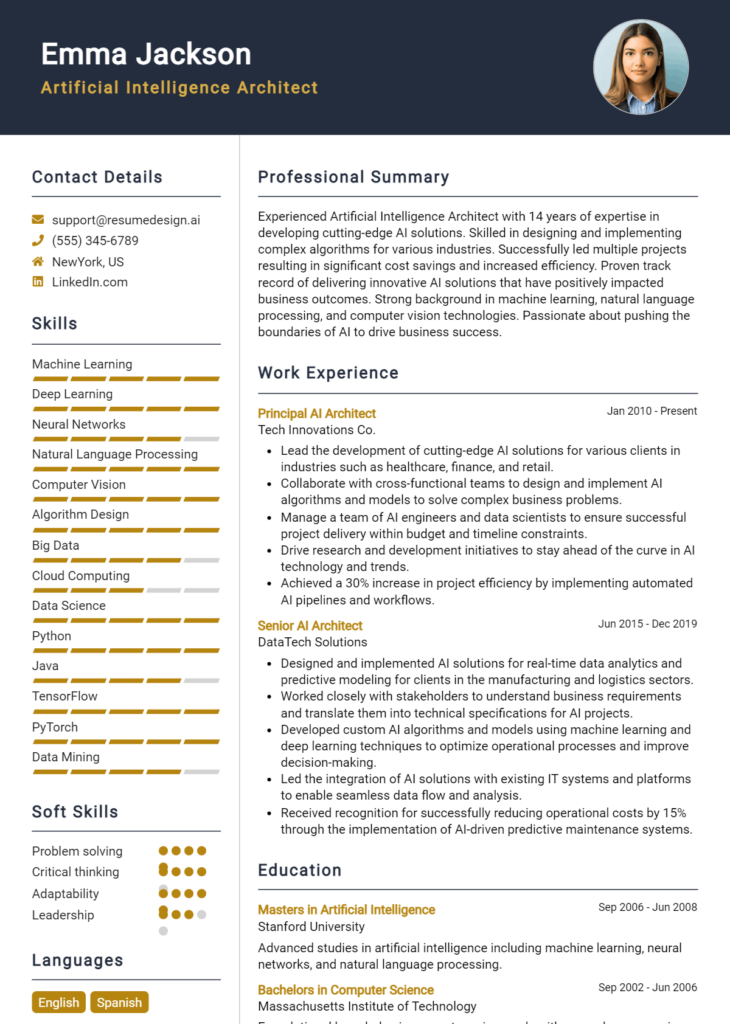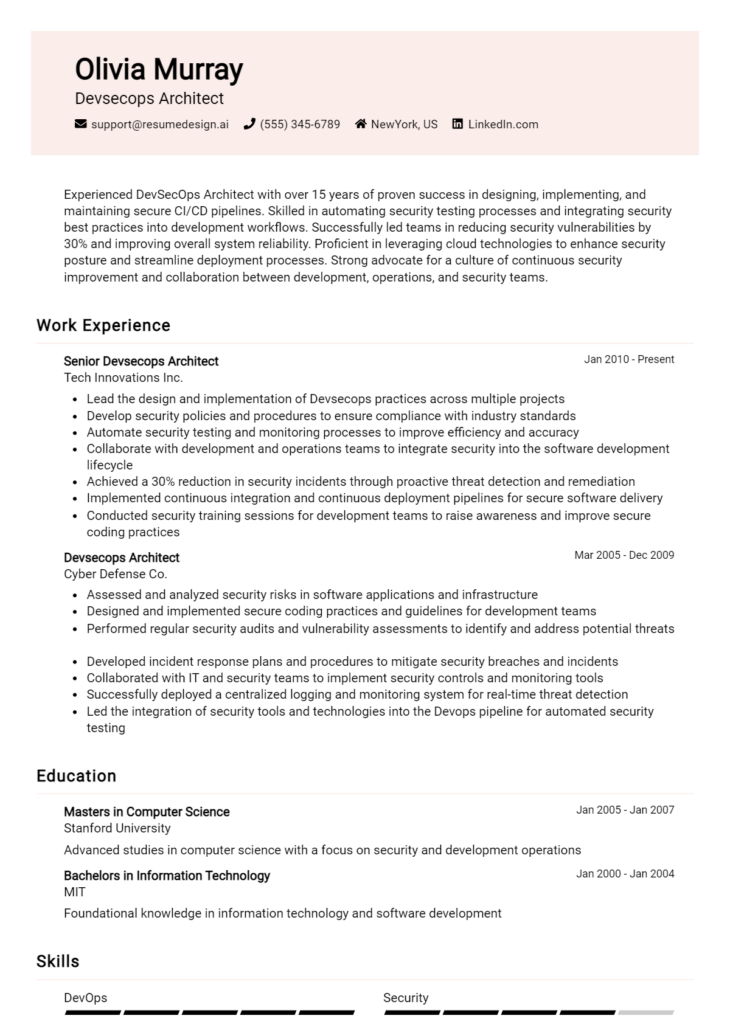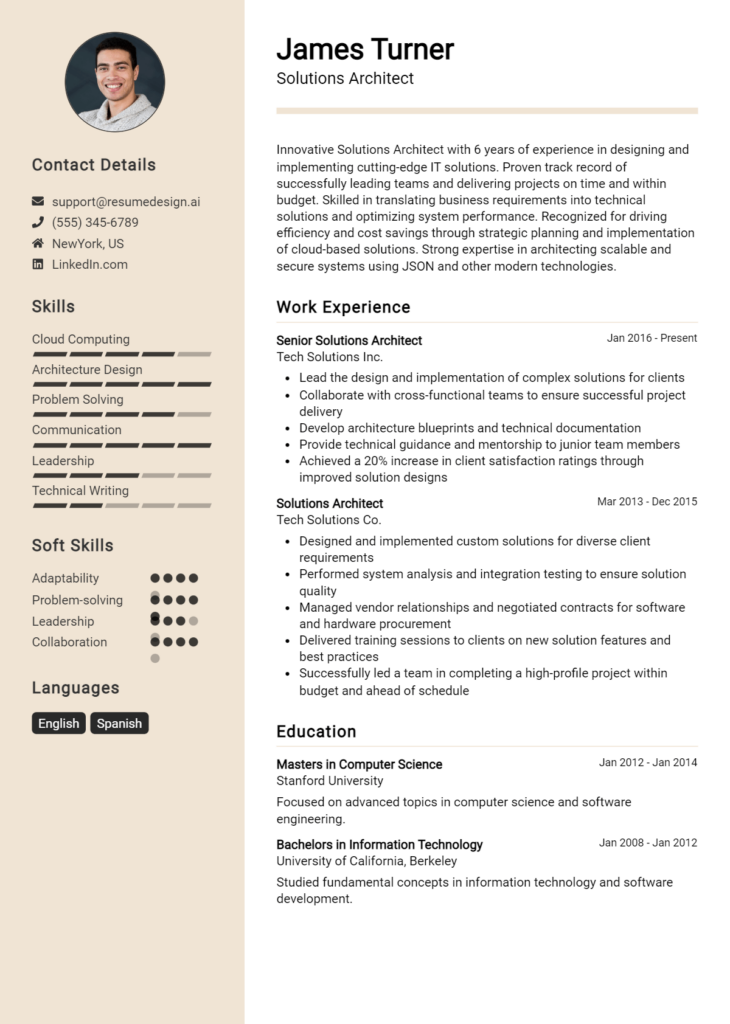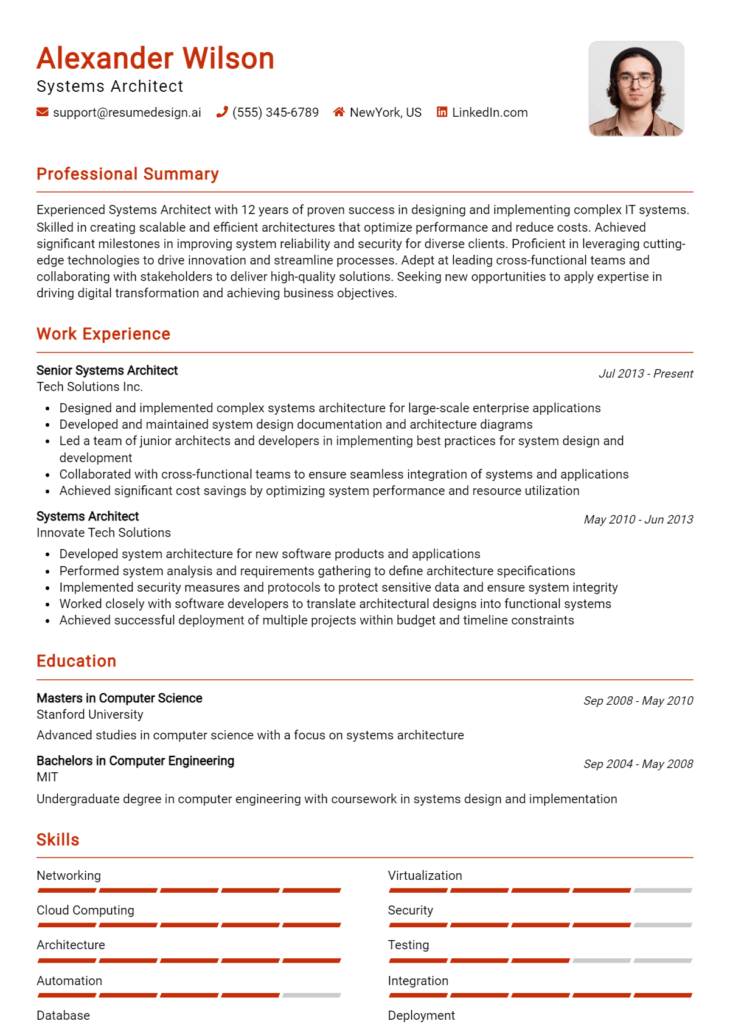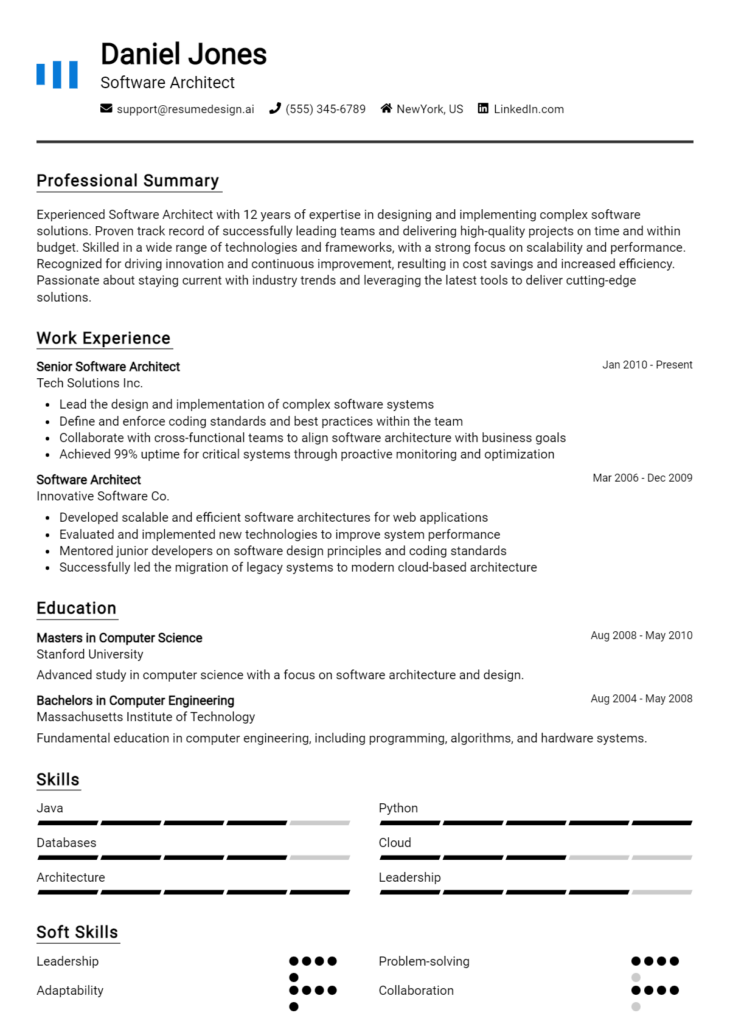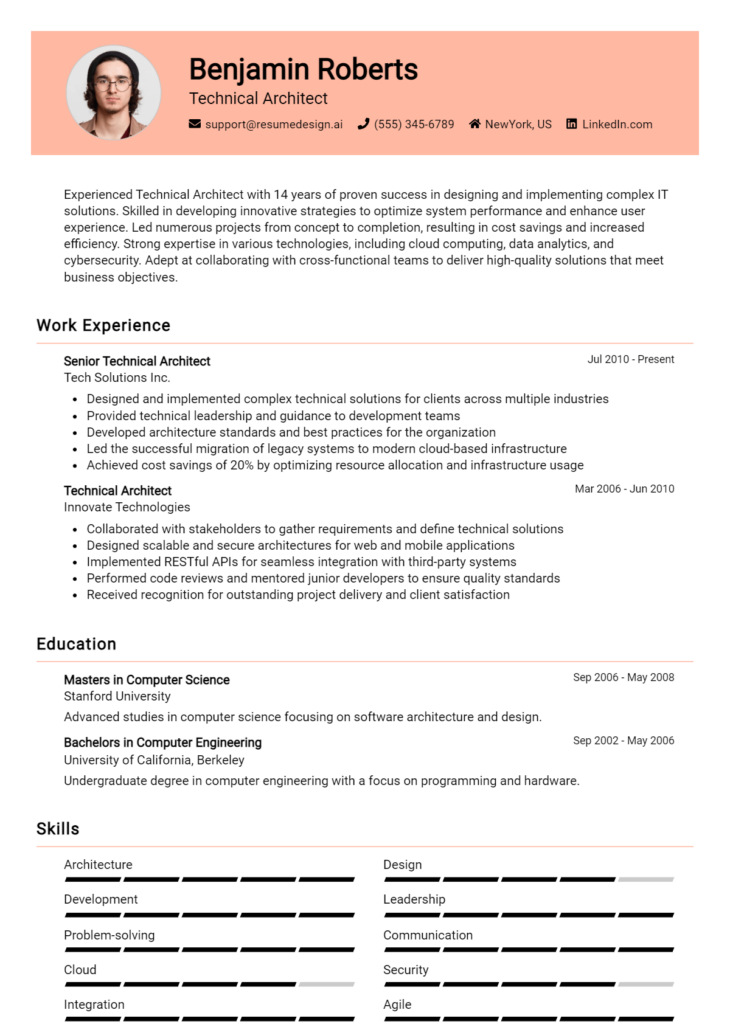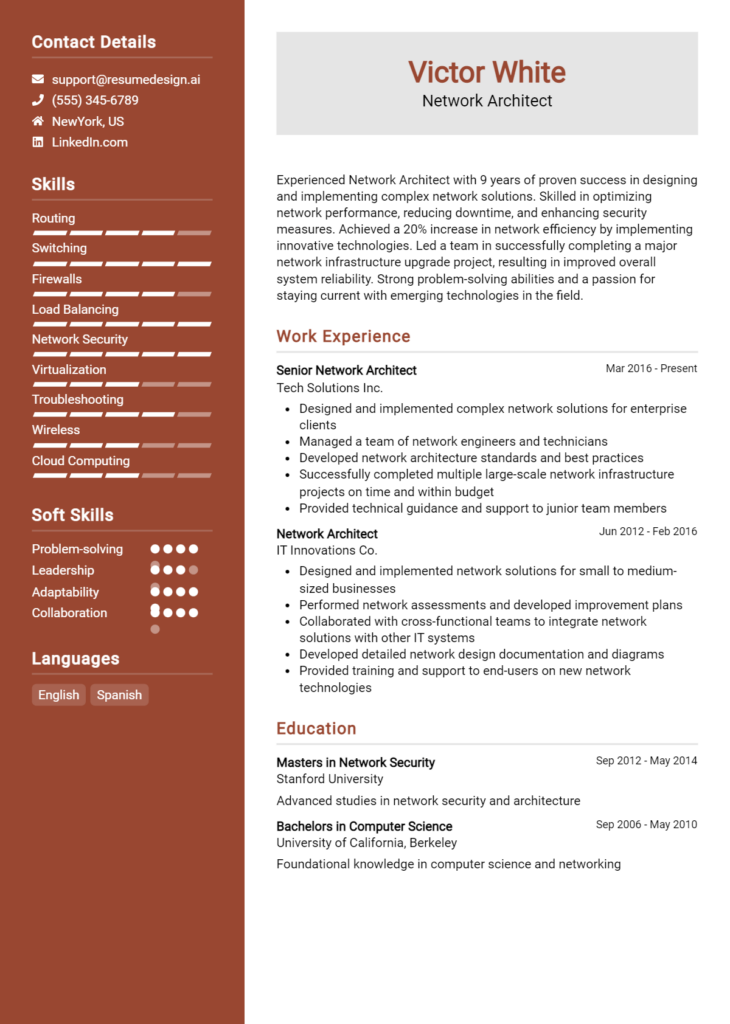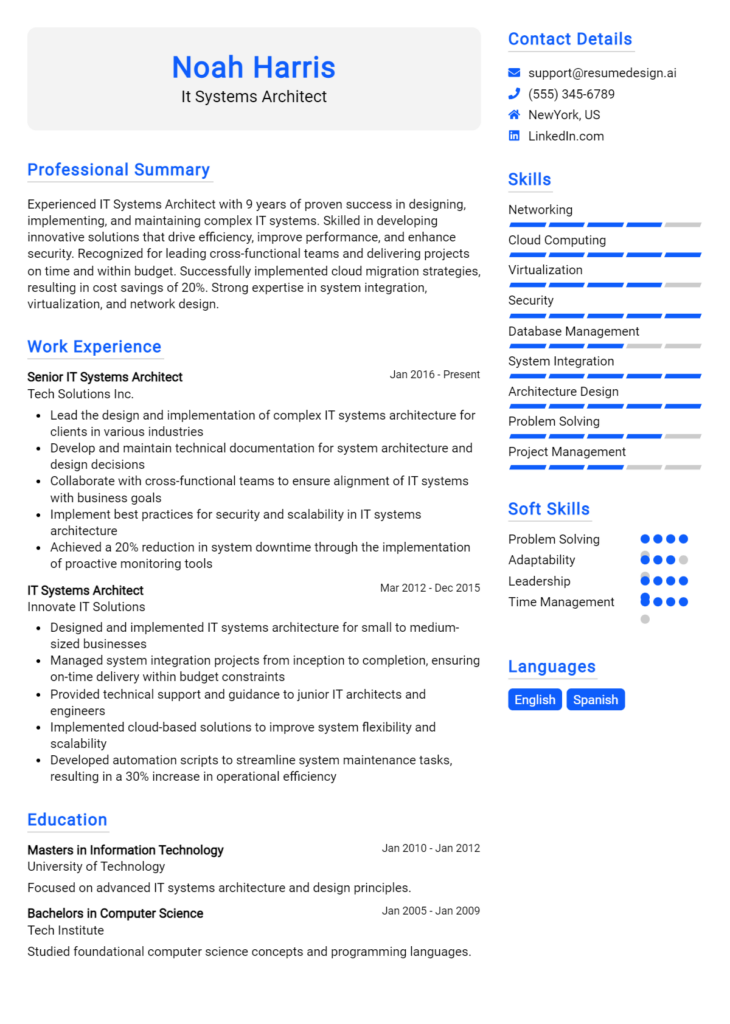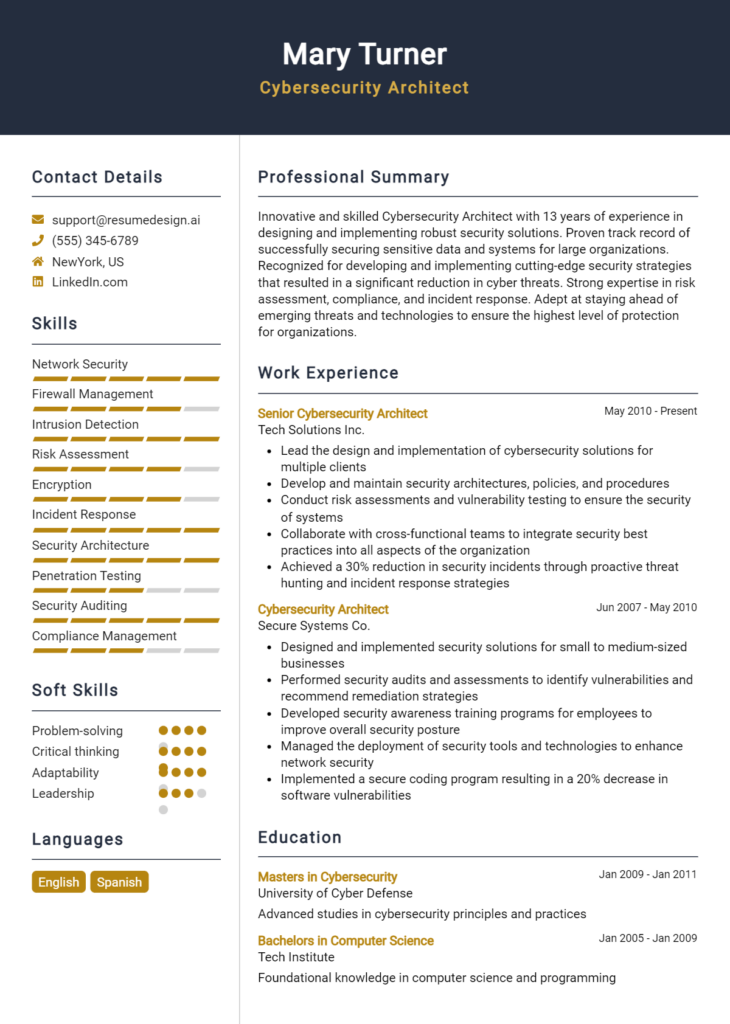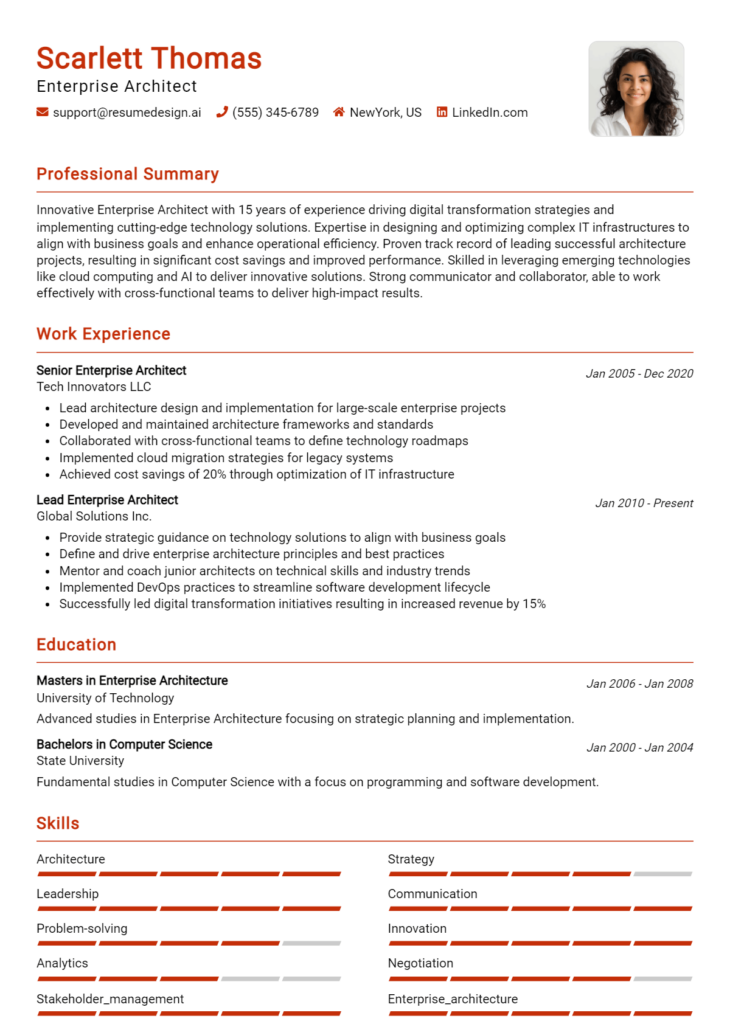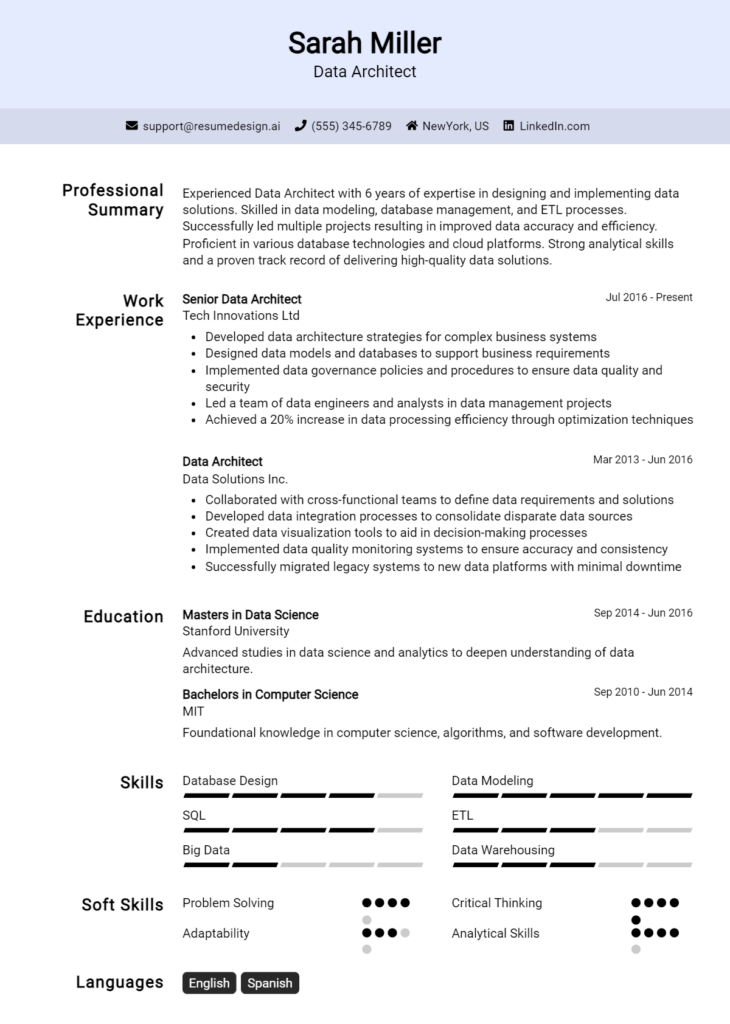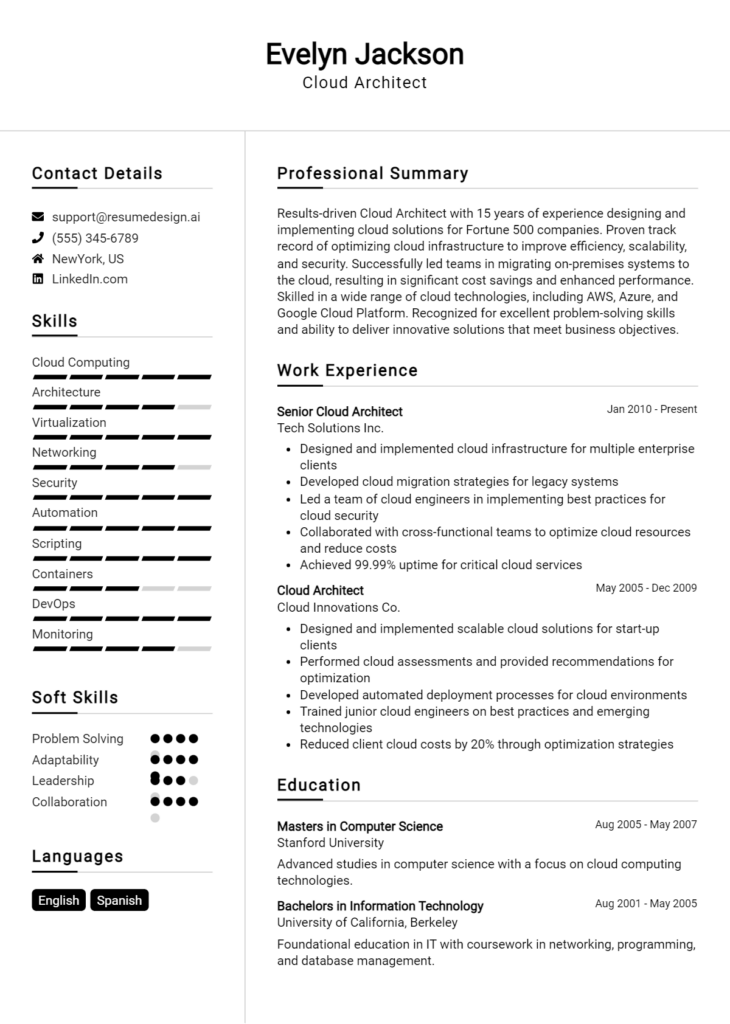Infrastructure as Code Specialist Core Responsibilities
An Infrastructure as Code (IaC) Specialist is pivotal in streamlining deployments and enhancing collaboration between development and operations teams. Key responsibilities include automating infrastructure provisioning, managing configuration, and ensuring system reliability through scripts and templates. Essential skills encompass strong programming knowledge, adeptness in cloud platforms, and problem-solving capabilities. These competencies not only drive efficiency but also align IT operations with business objectives. A well-structured resume can effectively highlight these qualifications, showcasing a candidate's ability to contribute to the organization's success.
Common Responsibilities Listed on Infrastructure as Code Specialist Resume
- Designing and implementing IaC solutions using tools like Terraform and CloudFormation.
- Automating infrastructure provisioning and deployment processes.
- Collaborating with development and operations teams to align infrastructure needs.
- Managing and maintaining version control for infrastructure code.
- Ensuring compliance with security and regulatory standards.
- Monitoring and optimizing performance of cloud resources.
- Troubleshooting and resolving infrastructure-related issues.
- Creating documentation for infrastructure processes and standards.
- Participating in disaster recovery planning and execution.
- Staying updated with emerging technologies and best practices in IaC.
- Training and mentoring team members on IaC tools and methodologies.
High-Level Resume Tips for Infrastructure as Code Specialist Professionals
In the competitive field of Infrastructure as Code (IaC) specialists, a well-crafted resume can be your golden ticket to securing an interview and, ultimately, the job of your dreams. Your resume is often the first impression you make on potential employers, making it crucial to showcase not only your technical skills but also your achievements and contributions to previous roles. A strong resume should reflect your understanding of IaC principles, tools, and methodologies, while also capturing the attention of hiring managers. This guide offers practical and actionable resume tips specifically designed for Infrastructure as Code Specialist professionals, helping you stand out in a crowded job market.
Top Resume Tips for Infrastructure as Code Specialist Professionals
- Tailor your resume to match the specific job description by highlighting relevant skills and experiences that align with the role.
- Showcase your experience with IaC tools such as Terraform, Ansible, or CloudFormation, emphasizing your proficiency and application.
- Quantify your achievements with concrete metrics, such as reduced deployment times or increased system reliability, to demonstrate your impact.
- Highlight your understanding of cloud platforms, such as AWS, Azure, or Google Cloud, and any certifications you may hold.
- Include a dedicated skills section that lists programming languages and technologies relevant to IaC, like Python, Bash, or Docker.
- Incorporate keywords from the job posting to enhance your chances of passing through Applicant Tracking Systems (ATS).
- Demonstrate your experience with version control systems like Git and CI/CD pipelines to show your ability to integrate IaC into workflows.
- Provide examples of successful projects or initiatives you've led, detailing your role and the technologies used.
- Use a clean and professional format that allows for easy readability, ensuring that key information stands out.
By implementing these tips, you can significantly enhance your resume and increase your chances of landing a job in the Infrastructure as Code Specialist field. A well-structured and targeted resume not only showcases your skills but also tells your professional story in a compelling way, making you a strong candidate in the eyes of potential employers.
Why Resume Headlines & Titles are Important for Infrastructure as Code Specialist
In the competitive landscape of tech recruitment, particularly for roles such as an Infrastructure as Code Specialist, a well-crafted resume headline or title is paramount. It serves as the first impression a candidate makes on hiring managers, succinctly summarizing their key qualifications and relevance to the role. A strong headline can captivate attention, making it easy for employers to identify the candidate's potential fit for the position. Therefore, it is essential that the headline is concise, relevant, and directly aligned with the job being applied for, effectively showcasing the candidate's expertise and value proposition.
Best Practices for Crafting Resume Headlines for Infrastructure as Code Specialist
- Keep it concise: Aim for one impactful phrase that encapsulates your expertise.
- Be role-specific: Ensure your headline reflects the specific position you are applying for.
- Use relevant keywords: Incorporate industry-specific terminology that resonates with the job description.
- Highlight key qualifications: Focus on your most impressive skills or accomplishments.
- Avoid jargon: Use clear language that is easily understandable by all hiring managers.
- Make it dynamic: Use action-oriented words to convey a sense of proactivity and expertise.
- Tailor for each application: Customize your headline based on the specific job and company culture.
- Showcase certifications or specializations: If applicable, include any relevant credentials to strengthen your headline.
Example Resume Headlines for Infrastructure as Code Specialist
Strong Resume Headlines
"Certified Infrastructure as Code Specialist with 5+ Years of Experience in AWS and Terraform."
“DevOps Enthusiast Specializing in Automated Deployment and Continuous Integration Solutions.”
“Expert in Infrastructure Automation with Proven Track Record of Reducing Deployment Times by 40%.”
“Innovative Architect in Infrastructure as Code with a Focus on Scalability and Efficiency.”
Weak Resume Headlines
“Looking for a Job in IT.”
“Experienced Professional.”
The strong headlines are effective because they convey specific information about the candidate's expertise and achievements, making it easy for hiring managers to see their potential value quickly. In contrast, the weak headlines lack detail and specificity, failing to communicate the candidate's qualifications or relevance to the role, which can lead to them being overlooked in a crowded applicant pool.
Writing an Exceptional Infrastructure as Code Specialist Resume Summary
A well-crafted resume summary is crucial for an Infrastructure as Code (IaC) Specialist as it serves as the first impression for hiring managers. This brief yet impactful section quickly captures attention by highlighting key skills, relevant experience, and notable accomplishments, positioning the candidate as a strong contender for the role. A strong summary not only encapsulates the candidate's professional identity but also aligns with the specific requirements of the job, ensuring that the most pertinent information is presented concisely and effectively.
Best Practices for Writing a Infrastructure as Code Specialist Resume Summary
- Quantify achievements to demonstrate impact (e.g., "Reduced deployment time by 30%").
- Focus on relevant skills and tools (e.g., Terraform, Ansible, CI/CD pipelines).
- Tailor the summary to match the job description, using keywords from the posting.
- Use clear and concise language, maintaining a professional tone.
- Highlight certifications or relevant education that bolster your expertise.
- Incorporate industry-specific terminology to showcase familiarity with the field.
- Avoid jargon that may not be understood by all hiring managers.
- Keep the summary brief, ideally within 3-5 sentences, to maintain interest.
Example Infrastructure as Code Specialist Resume Summaries
Strong Resume Summaries
Dynamic Infrastructure as Code Specialist with over 5 years of experience in automating cloud infrastructure using Terraform and AWS. Successfully led a team to implement CI/CD pipelines, resulting in a 40% increase in deployment efficiency and a significant reduction in downtime.
Results-driven IaC Specialist skilled in Ansible and Kubernetes, with a proven track record of optimizing infrastructure costs by 25% through effective resource management and automation. Holds multiple certifications in cloud architecture and DevOps practices.
Dedicated Infrastructure as Code professional with expertise in scripting, version control, and cloud services. Achieved a 50% reduction in manual configuration errors by implementing automated deployment strategies, enhancing team productivity and system reliability.
Weak Resume Summaries
Experienced IT professional looking for a position in Infrastructure as Code.
Knowledgeable in various tools and technologies related to cloud infrastructure. Seeking to grow my career.
The strong resume summaries are considered effective because they provide specific examples of achievements and quantify results, clearly demonstrating the candidate's value to potential employers. They incorporate relevant skills and tools that align with the job, making the candidates stand out. In contrast, the weak summaries lack detail and specificity, failing to convey the candidate's unique qualifications or impact, making them less compelling to hiring managers.
Work Experience Section for Infrastructure as Code Specialist Resume
The work experience section is a critical component of an Infrastructure as Code Specialist resume, serving as a showcase for a candidate's technical skills, project management capabilities, and their ability to deliver high-quality products. This section not only highlights past roles and responsibilities but also emphasizes quantifiable achievements that demonstrate a candidate's impact in previous positions. Aligning work experience with industry standards is vital, as it reflects a candidate's proficiency in relevant technologies and methodologies, as well as their capacity for collaboration and leadership in diverse teams.
Best Practices for Infrastructure as Code Specialist Work Experience
- Clearly outline specific technical skills utilized in each role, such as tools, languages, and frameworks.
- Quantify achievements with metrics (e.g., reduced deployment time by 30% or managed a team of 10).
- Use action verbs to convey impact and demonstrate leadership capabilities.
- Align experiences with industry standards and best practices in Infrastructure as Code.
- Highlight collaborative projects that involved cross-functional teams.
- Include relevant certifications or training that enhance technical credibility.
- Showcase involvement in the full software development lifecycle (SDLC).
- Tailor the work experience section to match the job description, emphasizing relevant experiences.
Example Work Experiences for Infrastructure as Code Specialist
Strong Experiences
- Led a team of 8 engineers in implementing Infrastructure as Code using Terraform, resulting in a 40% reduction in infrastructure provisioning time.
- Automated deployment pipelines for a microservices architecture, decreasing deployment errors by 25% and increasing deployment frequency by 50%.
- Managed the migration of legacy systems to a cloud-based infrastructure, achieving 99.9% uptime and saving the organization $200,000 annually.
- Collaborated with cross-functional teams to establish best practices for CI/CD processes, enhancing overall team productivity by 35%.
Weak Experiences
- Worked on various infrastructure projects.
- Assisted in maintaining cloud resources.
- Participated in team meetings and discussions.
- Helped with code deployment tasks.
The examples listed above are considered strong because they provide specific, quantifiable outcomes that demonstrate the candidate's technical expertise and leadership abilities. Each bullet point highlights measurable successes and illustrates collaboration within teams, showcasing a direct impact on the organization's efficiency and effectiveness. In contrast, the weak experiences lack detail and specificity, providing little insight into the candidate's actual contributions or the skills they utilized, making them less impactful in the context of a competitive job market.
Education and Certifications Section for Infrastructure as Code Specialist Resume
The education and certifications section of an Infrastructure as Code Specialist resume is crucial for showcasing the candidate’s academic background and their commitment to continuous professional development. This section not only highlights relevant degrees and industry-recognized certifications but also demonstrates a proactive approach to learning and adapting to evolving technologies in the field. By providing details on specific coursework, specialized training, and certifications, candidates can significantly enhance their credibility and alignment with the job role, making them more attractive to potential employers.
Best Practices for Infrastructure as Code Specialist Education and Certifications
- Focus on relevant degrees such as Computer Science, Information Technology, or related fields.
- Include industry-recognized certifications like AWS Certified DevOps Engineer, Certified Kubernetes Administrator, or Terraform Associate.
- List any specialized training programs that pertain to Infrastructure as Code tools and practices.
- Provide details on relevant coursework that reflects knowledge of cloud platforms and automation tools.
- Use clear, concise language and avoid jargon to ensure easy comprehension.
- Highlight any ongoing education efforts, such as workshops, webinars, or online courses.
- Tailor the education and certifications section to match the specific requirements of the job listing.
- Ensure dates are current, and include only relevant and recent certifications to maintain credibility.
Example Education and Certifications for Infrastructure as Code Specialist
Strong Examples
- Bachelor of Science in Computer Science, XYZ University, 2021
- AWS Certified DevOps Engineer – Professional, 2023
- HashiCorp Certified: Terraform Associate, 2022
- Completed coursework in Cloud Computing and Automation, ABC Online Academy, 2022
Weak Examples
- Associate Degree in General Studies, DEF Community College, 2018
- Certification in Microsoft Word, 2020
- Bachelor's in Business Administration, GHI University, 2019
- Outdated certification in Legacy Systems Management, 2015
The strong examples are considered effective because they directly align with the skills and knowledge required for the Infrastructure as Code Specialist role, showcasing both relevant education and current certifications that demonstrate expertise in modern technologies. In contrast, the weak examples lack relevance to the position, featuring outdated or unrelated qualifications that do not adequately reflect the candidate's capabilities in the field of Infrastructure as Code.
Top Skills & Keywords for Infrastructure as Code Specialist Resume
The role of an Infrastructure as Code (IaC) Specialist is pivotal in today’s fast-paced tech landscape, where automation and efficiency are paramount. A well-crafted resume that highlights the right skills can make a significant difference in securing a position in this competitive field. Employers are increasingly looking for candidates who not only possess technical expertise but also demonstrate strong interpersonal abilities. Therefore, showcasing a blend of hard and soft skills on your resume is essential to reflect your qualifications and readiness to contribute effectively to a team's goals.
Top Hard & Soft Skills for Infrastructure as Code Specialist
Soft Skills
- Effective Communication
- Problem-Solving Abilities
- Team Collaboration
- Adaptability
- Time Management
- Attention to Detail
- Critical Thinking
- Creativity
- Conflict Resolution
- Leadership
Hard Skills
- Proficiency in Terraform, CloudFormation, or similar tools
- Experience with CI/CD pipelines
- Knowledge of containerization technologies (Docker, Kubernetes)
- Scripting languages (Python, Bash, etc.)
- Understanding of cloud platforms (AWS, Azure, GCP)
- Configuration management tools (Ansible, Puppet, Chef)
- Networking fundamentals
- Version control systems (Git, SVN)
- Infrastructure monitoring tools
- Security best practices in cloud architecture
By focusing on these skills and ensuring they are prominently featured in your resume, you can clearly communicate your capability to prospective employers. Additionally, highlighting relevant work experience further enhances your profile, demonstrating how you have effectively applied these skills in real-world scenarios.
Stand Out with a Winning Infrastructure as Code Specialist Cover Letter
Dear [Hiring Manager's Name],
I am excited to apply for the Infrastructure as Code Specialist position at [Company Name] as advertised on [where you found the job listing]. With a strong foundation in cloud technologies and a proven track record of implementing Infrastructure as Code (IaC) practices, I am confident in my ability to contribute effectively to your team and enhance your cloud infrastructure management. My experience in leveraging tools such as Terraform, Ansible, and AWS CloudFormation has equipped me with the skills necessary to automate and streamline deployment processes, ensuring faster delivery and improved reliability.
In my previous role at [Your Previous Company], I successfully designed and implemented IaC solutions that reduced deployment times by 40% and minimized human error through automation. By collaborating closely with development and operations teams, I created and maintained a robust CI/CD pipeline that supported continuous integration and delivery. My commitment to best practices and adherence to security protocols has consistently led to increased efficiency and a reduced risk profile for the infrastructure I manage. I am particularly drawn to [Company Name]'s innovative approach to cloud solutions and your commitment to excellence, and I am eager to bring my expertise in IaC to help drive your projects forward.
Moreover, I am passionate about staying current with industry trends and advancements in cloud computing and DevOps methodologies. I actively participate in relevant workshops and online communities, sharing insights and learning from peers to refine my skills. I believe that continuous learning is vital in this fast-paced field, and I am excited about the opportunity to collaborate with a talented team at [Company Name] to further advance my knowledge while contributing to exciting projects.
Thank you for considering my application. I look forward to the opportunity to discuss how my skills and experiences align with the needs of your team. I am eager to share my passion for Infrastructure as Code and explore how I can contribute to the ongoing success of [Company Name].
Sincerely,
[Your Name]
[Your LinkedIn Profile]
[Your Contact Information]
Common Mistakes to Avoid in a Infrastructure as Code Specialist Resume
When crafting a resume for the role of an Infrastructure as Code (IaC) Specialist, it's crucial to present your skills and experience effectively to stand out in a competitive job market. Many candidates make common mistakes that can undermine their chances of landing an interview. Avoiding these pitfalls can significantly enhance the impact of your resume and showcase your qualifications in the best light.
Neglecting Keywords: Failing to incorporate relevant keywords from the job description can result in your resume being overlooked by Applicant Tracking Systems (ATS) that filter applications based on specific terms.
Vague Descriptions: Providing generic job descriptions without quantifiable achievements makes it difficult for hiring managers to gauge your impact. Use specific metrics and examples to demonstrate your contributions.
Overloading with Technical Jargon: While technical expertise is essential, bombarding your resume with excessive jargon can alienate non-technical recruiters. Strike a balance by explaining concepts clearly.
Lack of Focus on IaC Tools: Not highlighting experience with popular IaC tools like Terraform, Ansible, or CloudFormation can diminish your resume's effectiveness. Ensure you showcase proficiency in these tools prominently.
Ignoring Soft Skills: Focusing solely on technical skills without mentioning soft skills like teamwork, communication, or problem-solving can leave a gap in your profile. Employers value well-rounded candidates who can collaborate effectively.
Inconsistent Formatting: A cluttered or inconsistent format can make your resume hard to read. Use a clean, professional layout with organized sections to enhance readability.
Omitting Relevant Certifications: Failing to mention certifications related to cloud platforms, DevOps, or IaC can be a missed opportunity. Certifications demonstrate your commitment to continuous learning and expertise in the field.
Not Tailoring the Resume: Submitting a one-size-fits-all resume can be detrimental. Tailor your resume for each application to reflect the specific requirements and responsibilities of the job you are applying for.
Conclusion
In this article, we explored the essential skills and responsibilities of an Infrastructure as Code (IaC) Specialist, highlighting the significance of automation in modern infrastructure management. We discussed the importance of proficiency in tools such as Terraform, AWS CloudFormation, and Ansible, as well as the necessity for a strong understanding of DevOps principles. Additionally, we emphasized the value of collaboration and communication skills, as IaC Specialists often work closely with development and operations teams to streamline processes and enhance productivity.
As you reflect on your career path and the insights shared, it's an opportune moment to review and update your Infrastructure as Code Specialist resume. Ensure it showcases your relevant skills, experiences, and achievements that align with industry demands.
To assist you in this process, take advantage of resources available at resume templates, resume builder, resume examples, and cover letter templates. These tools can help you create a compelling resume that stands out to potential employers. Start enhancing your professional profile today!

